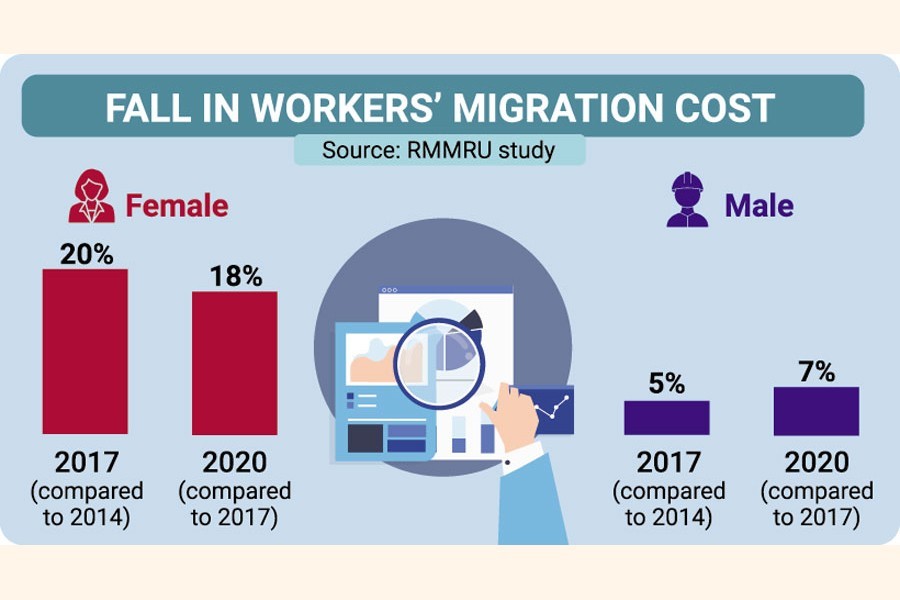The cost of migration for Bangladeshi workers declined to some extent over the last several years, but it is still highest in Southeast Asia, according to a new study.
The Refugee and Migratory Movements Research Unit (RMMRU) study showed the female migration cost effectively decreased by 20 per cent in 2017 than that of 2014. It fell by 18 per cent in 2020 as compared to 2017.
Compared to 2014, the male migration cost reduced by 5.0 per cent in 2017 than that of 2014 and by 7.0 per cent in 2020 from 2017 level.
The RMRRU released the study findings at a dissemination workshop on 'Impact of Migration on Transformation to Sustainability: Poverty and Development in Bangladesh' at a city hotel on Wednesday.
"The migration cost reduced in the last few years considering a 5.0 per cent rate of average annual inflation," Tasneem Siddiqui, founding chair of RMMRU, told the FE on the sidelines.
"If we go for a deeper analysis, we will see that the recruitment charges have not increased massively in the last 10 years," she added.
Still, the migration cost is a great concern as Bangladeshi workers were bearing the highest charges in Southeast Asia, she noted.
Addressing the programme as chief guest, State Minister for Foreign Affairs Shahriar Alam stressed the need for ensuring migration of skilled workers so that they get wages at an increased rate. The government is working to ensure safe and orderly migration, he added.
According to the study, the cost of recruitment varies on the basis of gender, countries of destination as well as types of visa.
The RMMRU study was conducted based on a long-running panel survey of over 6000 households, spanning 20 districts of Bangladesh. It compared economic sustainability of internal migrants, international migrants and non-migrant households.
It found that the internal migrant households are best able to protect expenditure against adverse climate and health shocks.
Led by Dr Tasneem Siddiqui, the research was conducted in collaboration with Dr C Rashaad Shabab of University of Sussex, Dr Ananta Neelim of University of Tasmania and Md Mahmudol Hasan Rocky of RMMRU.
Dr Hossain Zillur Rahman, executive chairman of the Power and Participation Research Centre, Md Shahidul Haque, former foreign secretary, Professor Mustafizur Rahman, distinguished fellow at the Centre for Policy Dialogue, and Suzanne Mueller, director of cooperation, Swiss Agency for Development and Cooperation, among others were present at the event.


